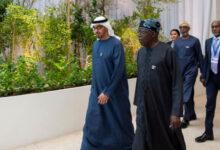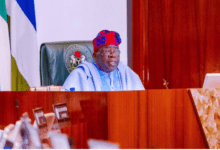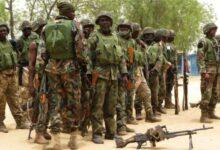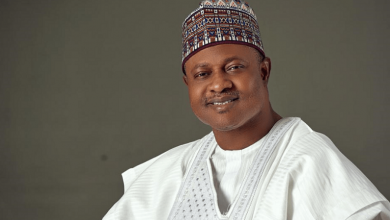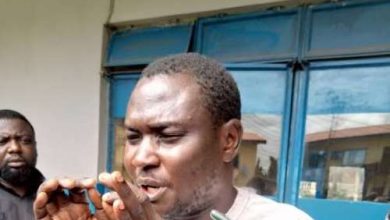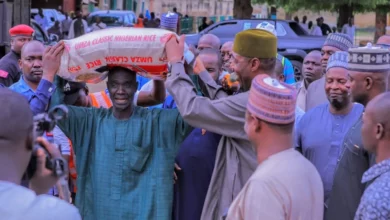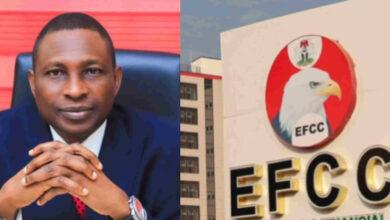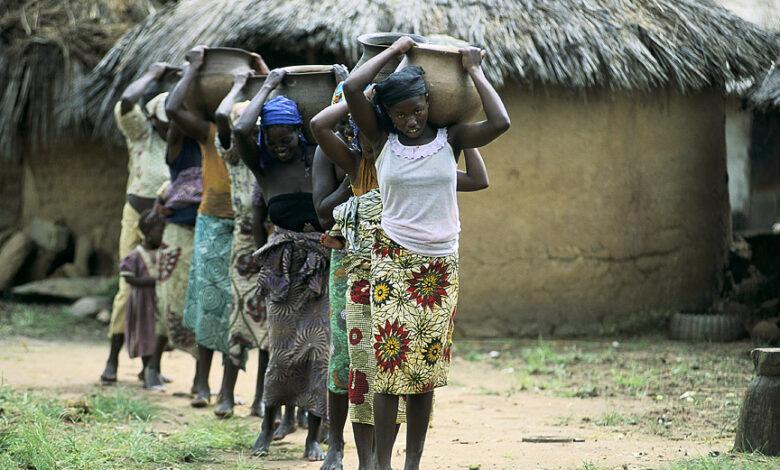
Least Developed States in Nigeria – Nigeria is Africa’s largest economy and has made significant progress in economic development over the past decades. However, there are still major regional disparities, with certain states lagging far behind national averages in basic socioeconomic indicators. Information Guide Nigeria
Here we examine the 15 least developed states in Nigeria based on factors like poverty rates, literacy, infrastructure, healthcare access, and availability of economic opportunities.
👉 Relocate to Canada Today!
Live, Study and Work in Canada. No Payment is Required! Hurry Now click here to Apply >> Immigrate to CanadaRead Also: Top 15 States with high illiteracy rates in Nigeria
The Top 15 Least Developed States in Nigeria Are:
1. Sokoto
Sokoto is consistently ranked lowest in terms of human development indicators in Nigeria. An estimated 87.8% of the state’s population lives below the poverty line as of 2020. Educational outcomes are extremely poor, with only 19.1% literacy rate as of 2018. Public infrastructure and amenities are highly inadequate, with most residents lacking access to electricity, pipe-borne water and proper sanitation facilities. The economy is dominated by subsistence agriculture and informal trading activities. Major infrastructure upgrades are required to connect Sokoto to national and international markets. Least Developed States
2. Kebbi
Kebbi is another highly underdeveloped state in northwestern Nigeria, with 83.4% poverty rate. Only about 10% of the population has completed secondary education. Healthcare facilities and sanitation conditions are dire. Economic activity revolves around small-scale trading and primary agriculture like rice and onion farming. Lack of modern infrastructure and industrialization continues to keep Kebbi in a developmental rut.
3. Zamfara
Zamfara faces a 79.9% poverty rate, which is among the highest in the country. Less than 9% of adults are literate, severely limiting human capital development. Infrastructure is extremely limited in terms of paved roads, power supply, communication networks and more. The state also suffers from high levels of banditry and violence, leading to instability and fear. Zamfara needs extensive governance reforms as well as major economic initiatives, focusing especially on legal industries like agriculture and solid minerals mining.
Read Also: Top 15 Smallest States in Nigeria
4. Jigawa
Located in the North West zone, Jigawa has made gradual improvements but still contends with massive development challenges. About 74% of residents are estimated to be living in poverty. Although infrastructure is somewhat better than neighboring states, literacy rate stands at just 28.5%. Subsistence agriculture is the predominant economic activity. Recurring flooding during rainy season also disrupts crops and houses. Jigawa needs more healthcare facilities, banks, factories, modernized road networks, and advanced IT infrastructure for growth. 15 Best Backlink Checker Tools for SEO Success
5. Yobe
Yobe, situated in northeastern Nigeria, has debilitating socioeconomic indicators. Around 73.3% of the state’s population lives in poverty. Educational outcomes are awful, with just 14.2% literacy among adults as of 2018. The economy is largely sustained by small-scale trading and subsistence farming. Electricity access and paved roads are luxuries for most. Boko Haram insurgency continues to be an issue. Large-scale public and private investments are required in education, healthcare, power, transportation and security.
6. Taraba
Taraba, located in the North East region, contends with alarming rates of poverty at nearly 80%. Food insecurity remains high due to low farm productivity and persistent conflicts between herdsmen and farmers over scarce resources. Access to electricity, healthcare, clean water and sanitation facilities is very limited. Recurring floods during rainy season also disrupt transport infrastructure. Taraba needs extensive infrastructure upgrades and implementation of supportive policies to develop its agricultural and natural resources potentials. 10 Best Online Fine Art Courses with Certificate
👉 Relocate to Canada Today!
Live, Study and Work in Canada. No Payment is Required! Hurry Now click here to Apply >> Immigrate to Canada7. Adamawa
Adamawa’s poverty rate stands at 72.2% as of 2020. Only 27% of the population has access to electricity. The state’s development has been severely impacted by Boko Haram’s insurgent activities over the past decade. Vast improvements in security, infrastructure rehabilitation, transparent and accountable governance, and provision of economic opportunities are critically required in Adamawa.
Read Also: Top 15 Smallest States in Nigeria
8. Gombe
Gombe contends with 71% poverty rate despite its strategic location in Nigeria’s North East region. The state has a highly informal economy with low 33% literacy. Poor road networks inflate transportation costs. Electricity access is limited. Provision of clean water and sanitation facilities is inadequate. Gombe needs investments in digital infrastructure, vocational training, electricity access and formalization of economic activities. NYSC Portal
9. Bauchi
Bauchi’s poverty rate stands at 67%. Only 22.5% of the population is literate. Most economic activity is concentrated in the agricultural sector. Infrastructure is grossly inadequate – just 30% of residents have access to electricity. Environmental challenges like flooding and erosion compound development problems. Bauchi would benefit from upgrading its infrastructure, education and healthcare systems, and expanding economic opportunities.
10. Katsina
Katsina is among Nigeria’s poorest states, with 66.7% poverty rate. The state relies on an informal economy powered by smallholder subsistence agriculture and non-mechanized activities. Electricity access is extremely limited. Literacy rate stands at just 35%, hindering skills acquisition. Improved infrastructure like paved roads, power supply, and market linkages can bolster economic productivity. JAMB Portal
11. Niger
Niger state in North Central Nigeria struggles with 60% poverty rate. Less than half of the population is connected to the national grid. Over 40% of the population is illiterate. Insecurity remains a huge concern. Concerted efforts are needed to invest in education, healthcare, electricity, internet connectivity, roads and security resources.
Read Also: Top 15 States with Pure Drinking Water in Nigeria
12. Ebonyi
Ebonyi state, located in southeastern Nigeria, suffers from substantial infrastructure gaps. An estimated 60% of residents lack access to electricity. Many roads are in deplorable condition due to lack of maintenance. Literacy rate remains relatively low. The economy is sustained largely by small-scale agriculture. Ebonyi needs massive investments in electricity distribution, transportation networks, education, and industrialization. JAMB Result
13. Kogi
Kogi has high rates of infrastructural deficits. Only 28% of the population has access to electricity while less than 50% use clean water sources. Literacy rate lingers around 50%, hampering human capital development. Road networks are inadequate, inflating transportation costs. Flooding and erosion also frequently undermine socioeconomic progress. Kogi requires greater investments in education, healthcare, electricity, roads, digital infrastructure and security. 200 romantic love message for her
14. Zamfara
Zamfara, located in northwest Nigeria, contends with high poverty rate of 56%. Only 25% of the population is literate. Critical infrastructure like power, roads, and potable water is highly deficient. The state’s development has also been severely debilitated by rising insecurity. Extensive reforms are needed across governance, infrastructure, education, agriculture, and solid minerals mining. 105 good morning messages
15. Benue
Benue state in northcentral Nigeria has 56% poverty rate although literacy rate is around 41%. Infrastructure deficits persist in rural power supply, road connectivity, internet access, healthcare provision etc. Agricultural productivity is constrained by flooding during rainy seasons. Benue can progress faster with initiatives to boost education, improve rural infrastructure, deepen anti-corruption reforms, address security challenges and support greater agricultural productivity.
Read Also: Top 15 Timber-Producing States in Nigeria
Conclusion
In summary, Nigeria’s least developed states are predominantly located in the Northwestern and Northeastern regions. They commonly face challenges like high poverty rates, low literacy, poor infrastructure, unreliable power supply, inadequate access to healthcare and markets, subsistence economic activities, vulnerability to climate impacts and insecurity. Targeted long-term investments and policy reforms are critically required to upgrade socioeconomic outcomes and unlock the immense potential of these currently disadvantaged Nigerian states.
Check JAMB RESULT
Check and Confirm: How much is Dollar to Naira
